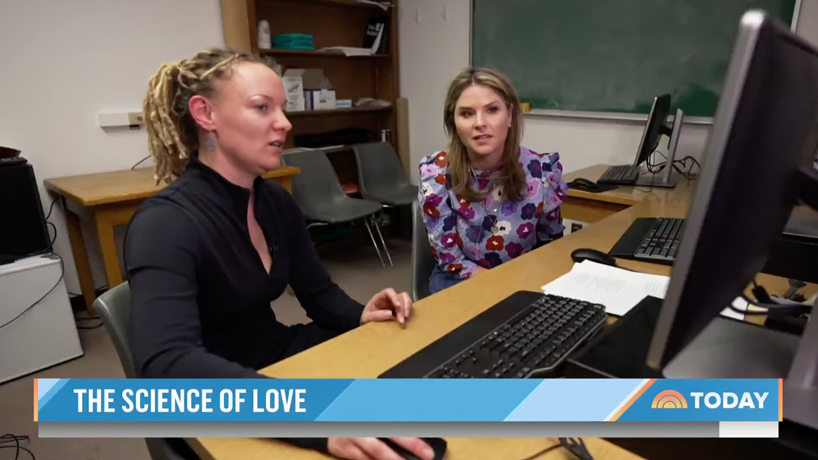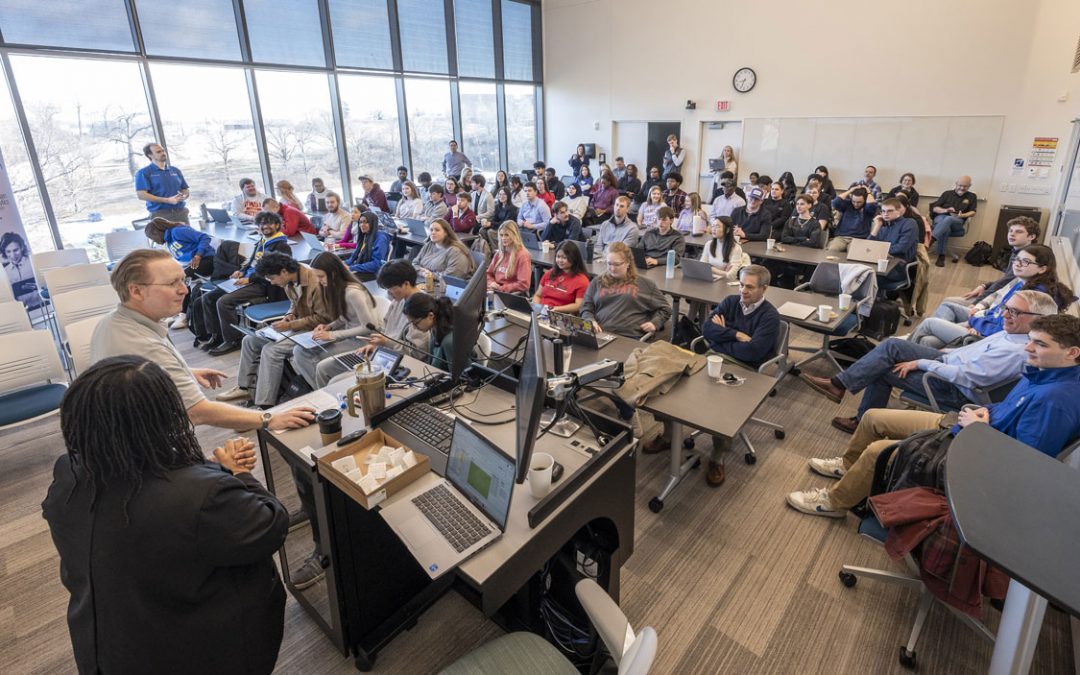
Associate Professor Sandra Langeslag (at left) talks to TODAY show host Jenna Bush Hager about the results of the electroencephalogram test she gave Bush Hager for a segment on the science of love. (Screenshot)
TODAY show host Jenna Bush Hager paid a visit to the University of Missouri–St. Louis earlier this month to speak to Associate Professor Sandra Langeslag about her research on the science underlying feelings of love and devotion.
The Valentine’s Day-themed segment aired on Monday morning on NBC.
Langeslag, a member of the faculty in the Department of Psychological Sciences, fitted Bush Hager with an electrode cap for an electroencephalogram – or EEG – which is a test that monitors and measures electrical activity in the brain. She then monitored how the host responded after being exposed to a variety of images, one second at a time, over six minutes. The pictures Bush Hager saw were of her husband, Henry Hager; her friend and colleague Al Roker; her cat, Hollywood Hager; and a stranger, which provided a baseline for the test.
Langeslag and Bush Hager sat together and went over the results, analyzing four colored lines on a computer screen.
“That is a lot bigger in response to your husband than the friend and the stranger,” Langeslag explained while pointing to a black line on the screen. “Your response to your cat is not quite as strong as to your husband, but it’s there, which makes sense because you’re probably also very attached to the cat.”
“But more attached to the husband,” said Bush Hager, who’s been married to her husband for nearly 15 years.
Langeslag, who holds a PhD in biological and cognitive psychology from Erasmus University Rotterdam in The Netherlands, has been studying the relationship between love and the brain for nearly 20 years. Her research in her Neurocognition of Emotion and Motivation Lab is relevant because virtually everyone falls in love at least once, and the experience of falling in or out of love has a significant impact on a person’s life.
In past studies, Langeslag has shown that infatuated individuals have increased attention and memory for their beloved and for information that has to do with their beloved. She has also explored how infatuation might distract people from doing other tasks, such as work or homework.
The data she’s collected from brain wave tests like the one she gave Bush Hager has proven that the brain creates stronger electrical signals when people are shown pictures of the people they love, and she has been investigating whether love feelings can be increased or decreased using cognitive strategies.
On its website, TODAY also shared a questionnaire used by Langeslag to help measure a person’s level of infatuation with someone else in a given relationship.
Watch the segment from Monday’s show:














